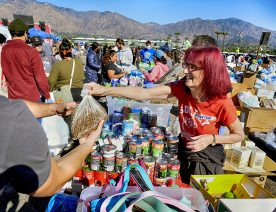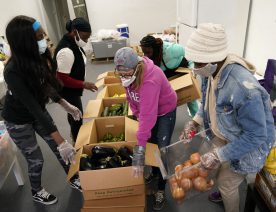
May 28, 2025
More people say they have given than received. Nearly 8 in 10 adults have given at least something to charity over the last year and a third have received money, resources, or assistance from family members outside their household, a crowdfunding campaign, non-profits, or government programs.
Among those who gave any money to a charitable organization, most say their belief in the charity’s mission and its effectiveness were very important reasons for donating.
College graduates are more likely than those without a college degree to donate because they believe in the mission of the charity, its effectiveness, or because it is important to donate. Though college graduates and non-graduates do so for tax deductions at similar rates.
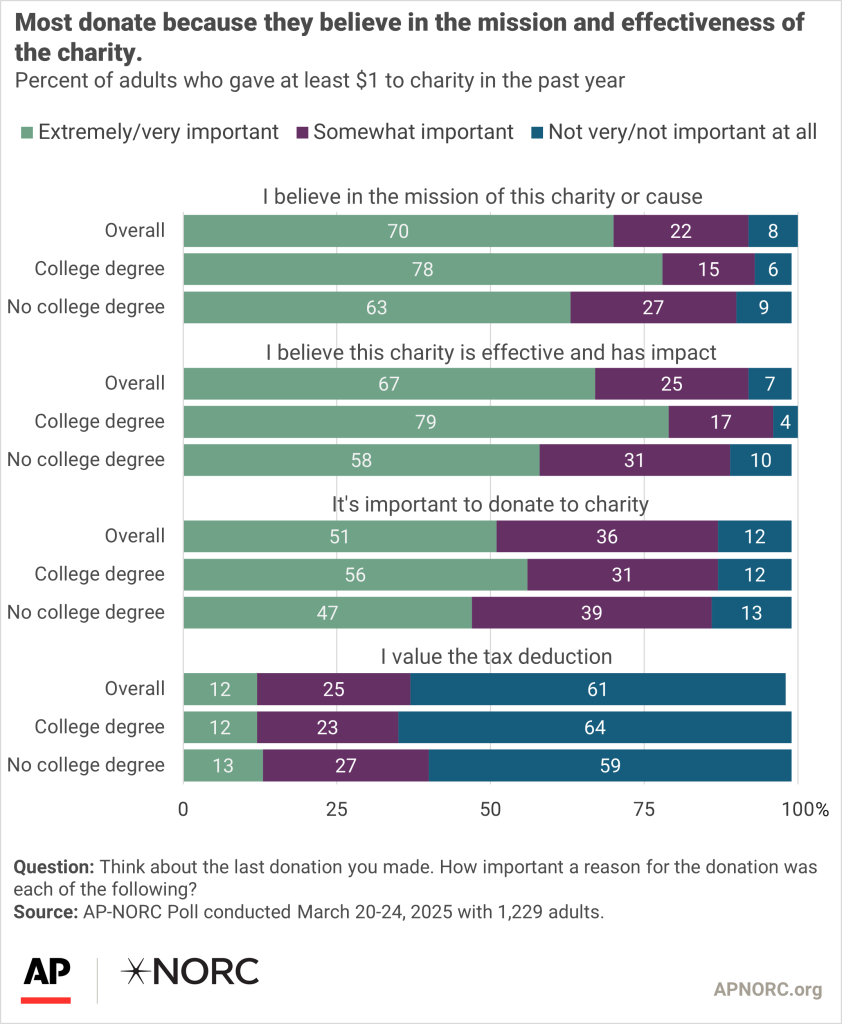
Few believe giving money to a political campaign is charitable giving and about half say the same about platforms like GoFundMe or GiveSendGo. Most claim giving directly to family members or individuals in need does classify as charitable giving.
More Democrats than Republicans believe giving money to crowdfunding campaigns (61% v. 44%) and political organizations (23% v. 14%) classifies as charity.

Though most say various organizations and the government are responsible to help people in need, few have a lot of faith in them to use their money in ways that actually do so. The public has more faith in charitable organizations than their government to use funds responsibly.
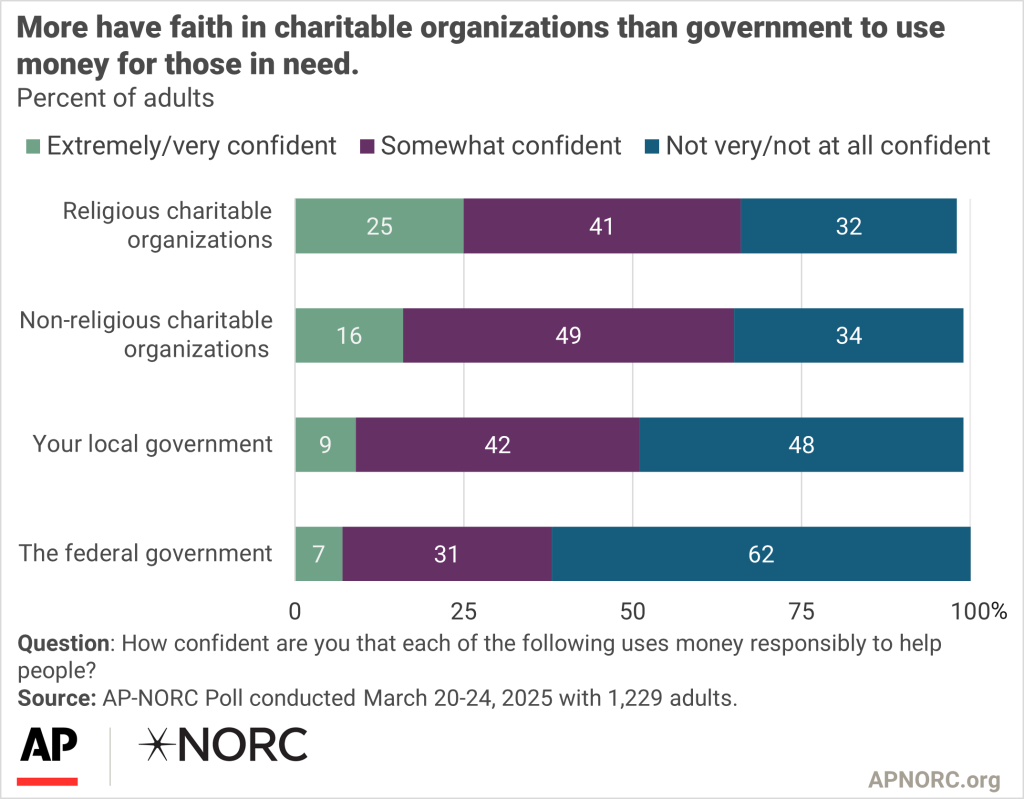
In the past year, under a quarter have donated to help the victims of a hurricane or the Los Angeles wildfires.
More Democrats than Republicans have donated to people impacted by the Los Angeles wildfires (20% v. 9%).

Though few have donated funds to the victims of disasters like Hurricane Helene or the Los Angeles wildfires in the past year, half say individuals should bear at least a moderate amount of responsibility for sending funds to the victims of severe weather events. Almost all expect federal and state governments to get involved when natural disasters strike, and 3 in 4 say the same about non-profits.
Though a vast majority of both parties agree that each level of government should be responsible, Democrats place more responsibility than Republicans on federal (91% v. 81%) and state governments (92% v. 79%).
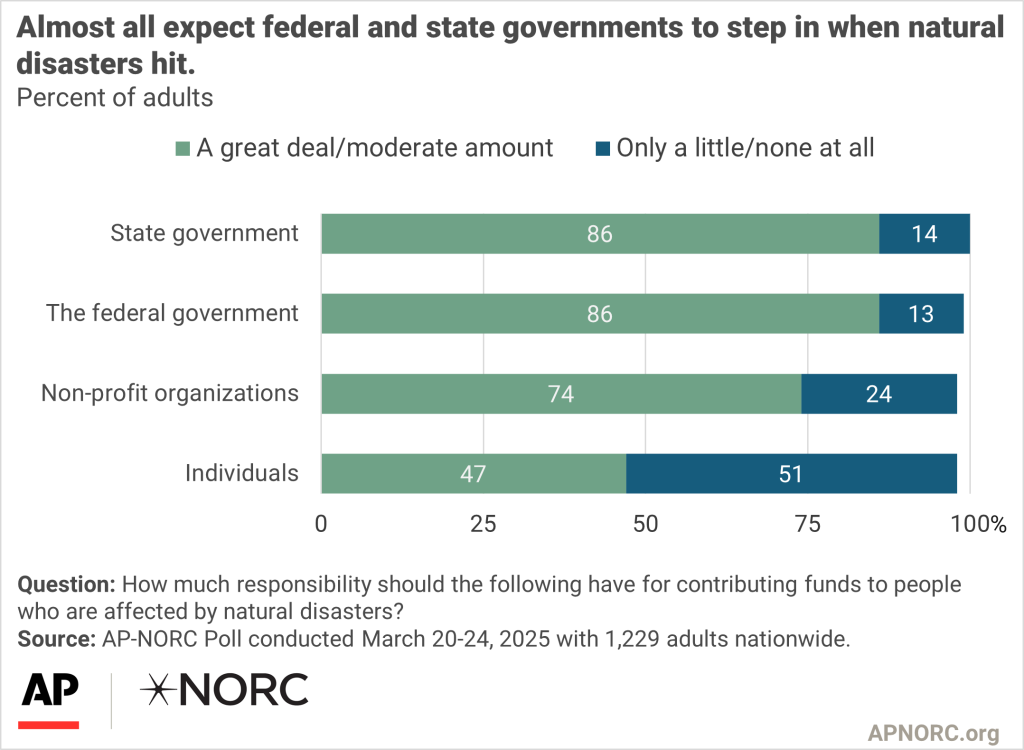
The public is fairly skeptical about the long-term effectiveness of U.S. international non-military aid for lower and middle-income countries, the world, and the U.S. itself.
Democrats are more optimistic than Republicans on all three items, but especially when it comes to how U.S. aid affects lower and middle-income countries, and the world.
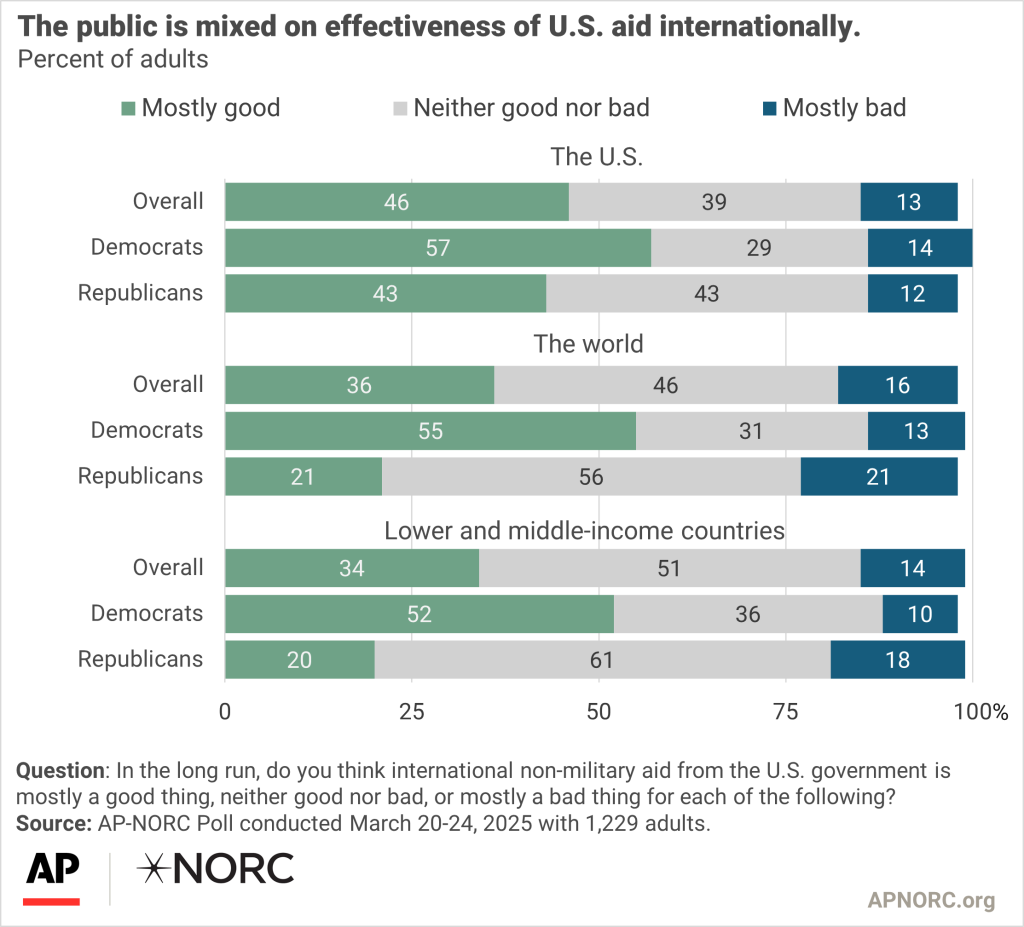
Among the third of the public who have received payments, assistance, or resources, they are most likely to get that assistance from government programs or family members.

Whether or not individuals report receiving assistance from a government program depends largely on their race, education, income, and age.

The nationwide poll was conducted March 20-24, 2025 using the AmeriSpeak® Panel, the probability-based panel of NORC at the University of Chicago. Online and telephone interviews using landlines and cell phones were conducted with 1,229 adults. The overall margin of sampling error is +/- 3.9 percentage points.
- Suggested Citation: AP-NORC Center for Public Affairs Research. “Charitable giving is motivated by mission and effectiveness, not tax deductions.” (April 2025). https://apnorc.org/projects/charitable-giving-is-motivated-by-mission-and-effectiveness-not-tax-deductions/





